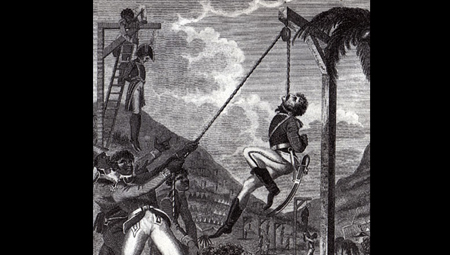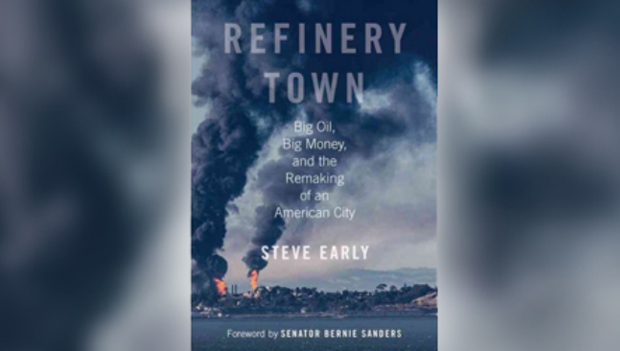Bulletin N° 760
Subject : CENTRAL BANKS AND THE OPPORTUNISTIC QUEST FOR MAXIMUM PROFITS, AT ALL COST.
Bastille Day 2017
Grenoble, France
Marat/Sade
(1967)
https://www.youtube.com/watch?v=RJc4I6pivqg
The Marquis de Sade is locked in the Charenton mental hospital and decides to put on a play. His overseers agree as long as he follows certain conditions.
He writes and directs the other mental patients in a play based on the life of the Jean-Paul Marat. As the play progresses, the inmates become more and more possessed
by the violence of the play and become extremely difficult to control. Finally, all chaos breaks loose.
Dear
Colleagues and Friends of CEIMSA,
The 19th-century US Robber Baron Daniel Drew
(1797-1879), speaking of the War of Secession (1861-1865) in which the United
States lost 2% of its total population, is said to have made the comment: “It’s
good to fish in troubled waters.” Capitalist speculators have always popped up
at unexpected times in unexpected places. The smell of profit attracts them
like flies to honey, and once the obsession takes hold of them, all other
considerations are crowed out of their heads.
The American democratic socialist leader Eugene Debs (1855-1926)
evolved to understand this class phenomenon, as he demonstrated after his
arrest during the Pullman Strike in 1894 : “I am a
Populist, and I favor wiping out both old parties so they will never come into
power again. I have been a Democrat all my life and I am ashamed to admit it.”
During his six-month imprisonment at Woodstock, Illinois, Debs studied Marx’s Capital, a copy of which was given to
him by Victor Berger (1860-1929) of Milwaukee, and his political comprehension
of society evolved from trade union consciousness to revolutionary
consciousness :
The issue is Socialism versus Capitalism. I am for Socialism
because I am for humanity. We have been cursed with the reign of gold long
enough. Money constitutes no proper basis of civilization. The time has come to
regenerate society – we are on the eve of a
universal change.(Labor’s
Untold Story, p.131)
The same process of understanding the destructive aspect of
capitalist class interests was produced among hundreds of thousands of workers
in the early 1980s. William Greider (b. 1936) writes
in “Slaughter of the Innocents,” chapter 13 of his book, Secrets
of the Temple :
Angry factory workers who lost their jobs [in 1982)] might blame
remote executives at the company’s ‘home office.’ Or they could blame heartless
bankers or greed ‘absentee owners.’ If they were especially sophisticated, they
might even blame the governors of the Federal Reserve. In every case, however,
their anger would miss the point. The decision makers, at every level, would
reply, correctly, that they were merely agents of the larger logic that favored
the political economy. Given the premise of maximum net gain, the choices were
required of them. To entertain alternatives, one would have to challenge the
underlying principles themselves, to question the dependent relationship
between work and capital, to reject the natural supremacy of profit over
intangible human cares. Neither farmers nor labor unions were disposed to
challenge those deeply held beliefs or able to imagine alternatives that were
less insensitive to human suffering.
As a practical matter, it was too late for concessions. Once
launched, the process of economic shrinkage rolled forward on its own momentum
and overwhelmed both management and labor. Every month, for nearly two years,
the unemployment rate would increase as hundreds of thousands more were out of
jobs. Eventually, national unemployment would reach a post-Depression record of
10.8 percent.(p.452)
. . .
This moral logic demonstrated the triumph of money over life. In
the hierarchy of shared cultural values and political goals, the abstraction of
money values was given greater rank than tangible needs of flesh and spirit,
just as Veblen has said. The dense web of conflicting social interests would , in effect, be reconciled by an exercise in
bookkeeping – justice would be redressed by balancing the ledger of money
values. One side would lose and the other would gain, but equity would be
served by restoring stable money.
This required implicitly a moral choice of abstraction over
tangible reality, a preference that was revealed when one compared the nature
of the losses suffered by victims on either side of the equation.
. . .
Barbaric as it might seem, people did actually lose their lives
so that money could be made sound again. The human casualties from a major
economic contraction were compared in number to the mortalities of a colonial
war. These deadly effects were documented by Dr. M. Harvey Brenner of Johns
Hopkins University, who made a study of the impact on life and health associated
with the deep recession of 1974-1975. That recession, Brenner concluded,
produced a 2.3 percent increase in the nation’s normal mortality rate. It led
to a 2.8 percent increase in the cardiovascular death rate, a 1.4 percent
increase in deaths from cirrhosis of the liver, a 1 percent increase in the
rate of suicides. In addition, he found a 6 percent increase in admissions to
state mental hospitals and in total arrests.
In all, Brenner calculate, 45,900 people had died prematurely
due to the swollen unemployment of 1974-1975 – casualties in a liquidation that
was less severe than the one unfolding in 1982.(pp.457-458)
The modus operandi of bank
officials was to turn away from the material hardships they had a hand in
creating, and to focus their attentions on technical matters, all the time
assuming the ‘ends justified the means.’
‘What you try to do,’ said E. Gerald Corrigan, president of the
Minneapolis Fed, ‘is satisfy yourself the, difficult as it may be, the
alternative would be far worse. Permitting the instabilities to go on would be
the worst thing you could do.’ That was the common rationale, repeated by Paul
Volcker and the others throughout the liquidation. If inflation was finally
brought under control, they promised, then everyone would be better off,
including those people who were now suffering .
. . .
Whatever their personal anguish, the Federal Reserve governors
were also essentially insulated. They did not personally confront the worst of
it; the uglier aspects did not intrude on their official deliberations. Policy
discussions inside the FOMC, as political scientist John T. Woolley noted, were
rigorously focused on ‘puzzle-solving’ questions – the complex technical issues
of money hydraulics. ‘Questions having to do with income distribution, or the
inequalities, the appropriate direction of future industrial development and so
forth are put aside,’ Woolley observed.
I don’t think we are very much driven by the question of equity,
other than in the broad sense,’ Governor Partee acknowledged . ‘We
would not back off from an interest rate [increase] because we thought there
were major inequalities involved.
Among themselves, the policy makers talked like financial
engineers, working out the abstract problems of money demand and velocity and
reserve control. The narrow focus allowed them to distance themselves from the
messy reality outside the boardroom. It was considered bad taste to dwell on
stories of personal tragedy. (pp.460-462)
Greider insists that this culture of
indifference to the misery of others was a masculine character trait, which was
not shared by female bank officials, such as Nancy Teeters, who served on the Board of Governors of the Federal Reserve System
from 1978 to 1984, and voted consistently against Chairman Volker and his
majority who implicated a monetarist policy of ever high interest rates despite
the dire consequences in the real economy. Citing the work of Harvard
psychologist Carol Gilligan, In
a Different Voice, Greider endorsed the
feminist view that women in general are more concerned with the material and
spiritual consequences policy has on society than are their male counterparts,
whose preoccupation in this field is usually derived from narrow mathematical
models.
The origin of gender differences was woven deeply in everyone’s
childhood experience – boys taught to separate from their mothers in order to
attain a mature masculine identity, girls learning form their mothers’ model
and assuming responsibility for maintaining unbroken personal attachments in
the family. As a result, males tend to have difficulty with relationships and
females with a sense of self.
The moral implications were sketched more clearly in Gilligan’s
example of clinical studies that asked grade-school boys and girls to solve
hypothetical dilemmas. If an impoverished man stole medicine to heal his sick
wife, should he be punished as a thief? The boys would weigh good
and evil arrive at a straightforward verdict by ‘logical deduction.’ The girls
attempted to devise ameliorative solutions in which all the parties settled the
issue by talking it out among themselves and compromising. In a similar vein,
Volcker and the majority would not consider themselves ‘wrong’ in any sense so
long as they adhered conscientiously to the economic rules of their system. In
the real world, as Nancy Teeters kept pointing out, things were getting
dangerously frayed, but the others found refuge from her evidence by sticking
to their numbers (while they resented her constant appeals to human sympathy).
In the male-dominated orthodoxy, particularly in economics, the
feminine was dismissed as an emotional evasion of hard facts. Yet it was the
masculine approach itself that was a form of evasion – a way to block out the
complex social realities by focusing solely on a system of mathematical
abstractions. As Gilligan and others have suggested, the social ideal should be
not to embrace one perspective or the other by to reconcile the two, to seek
balance in the way people think about such things, but also in the way public institutions
define social justice.
‘Sensitivity to the needs of others and the assumption of
responsibility for taking care lead women to attend to voices other than their
own and to include in their judgment to their points of view.’ This supposed
weakness was actually their moral strength – a mediating capacity that could
reach beyond the hard-edged adjudications of the masculine. The feminine vision
blurred the clear, sharp outlines of justice, and that enriched and deepened
the idea of what justice required.
Quite apart for Nancy Teeters and her losing
arguments inside the Fed, the feminine-masculine difference framed the moral
question that could be asked of the entire process of government-managed
liquidation. If they thought about it at all, people could sense easily enough
that there was something wrong about a system that, in effect, selected certain
victims to serve as the scapegoats for everyone else’s benefit. The moral
problem even more obvious when the sacrificial victims were largely chosen from
among the weak and powerless.(pp.466-469)
While Ms. Teeters’ resistance to monetarist dogma within the Fed
had no effect, Chairman Volcker effectively campaigned in Congress for his
draconian policy, in terms which served to mystify the issues
:
Volcker gave the senators in private the same argument he had
made so often in public: the Federal Reserve was powerless to bring down
interest rates by pumping up the money supply. If the Fed increased M-1, the
financial markets would react by bedding up interest rates on their own,
canceling out the intended results. That’s what had occurred in January, he
suggested. What Volcker left out of his explanation was the reason why the
markets had reacted this way – because the Federal Reserve’s monetarist operating
system told them to do so.
‘Volcker just said, ‘Look, I can’t affect interest rates’,’ one
participant related. ‘The Fed absolved itself of any responsibility for the recession . It was a great smoke screen.’
Liberal Democrats felt stymied by Volcker’s argument. They could
not see through it at first, not until they were coached by several independent
authorities, including Edward Yardeni of E. F. Hutton
and Lester Thurow of MIT. The economists explained
the game of circular reality played between market perceptions and Volcker’s
M-1. When M-1 rose above its target, financial markets scrambled for funds and
bid up interest rates, anticipating that the Fed would react by tightening. The
Fed saw market rates rising in response to M-1, and in order to keep its
promises to financial markets, the Fed did indeed tighten – thus ratifying
their expectations. The logic formed an absurd game of mirrors but one which
the Federal Reserve had the power to break – anytime it wished.
The economists assured the senators that if the Fed pumped
enough new money into the banking system, then short-term interest rates would
fall – no matter what the markets thought or Paul Volcker claimed. Neither
investor psychology nor monetarist theory was capable of repealing the law of
supply and demand. A market surplus of anything ,
including money, would drive down the price, including interest rates.(p.473)
The Federal Reserve’s raison d’être was from the start
and still is to reduce inflation for the benefit of their bosses, the
capitalist owners of investments. For this, a considerable human sacrifice is
necessary, an increase in misery, disproportionately among the poor working
class. There has been no doubt, up till now, that the ends justified the means. But early in the Reagan administration,
doubts began to surface, and the new term, ‘Stagflation’ was coined – inflation
and recession had appeared to be
wedded as uncommon partners, and they were here to stay! The pain that was
being inflicted on hundreds of thousands of scapegoats was simply not doing its
magic.
Behind its public façade, the Federal Reserve’s self-confidence
was shaken. The recovery did not materialize in the spring [of 1982], as Fed
economists had predicted. Instead of bottoming out, the economy seemed to be
sinking lower and the damage was spreading rapidly.
At the end of March, the Fed’s staff economists had again
assured the policy makers that a moderate recovery would be under way soon, but
a number of members on the Federal Open Market Committee were no longer buying
that forecast. They predicted the opposite – ‘continuing deterioration in both
agriculture and nonagricultural industries and regions.’
.
. .
At the Federal Reserve, the uncertainties were uncomfortably
close to home. The assumptions that had led the Federal Open Market Committee
to tighten the money supply again in early February were clearly askew. The
surge of M-1 growth in December and January did not presage a pickup in
economic activity as some of the governors had theorized. The opposite was now
occurring – industrial production was falling steadily toward a new low. The
quantity of money the Fed had supplied to the banking system ought to have been
ample to permit economic recovery. Clearly, it wasn’t. Judging from the
extraordinary level of interest rates, the Fed was still holding very tight.
What was wrong with money?
‘The economy was spiraling downward,’ Governor Nancy Teeters
said, ‘and the theories were falling apart on us.’
The theory that was falling apart was Milton Friedman’s - and, by adoption, Paul Volcker’s.
The new problem with M-1 was more profound than the confusion of money
definitions that the policy makers had encountered and tried to compensate for
at previous junctures. Money was now slowing down in circulation – losing velocity, in
technical terms – as the money supply turned over in different transactions in
the private economy at a declining pace. The slowing velocity disrupted all the
standard monetary equations. It meant that a given quantity of M-1 could not
possibly produce” the level of economic activity expected from it. Indeed, it
meant that money supply was effectively much tighter that the Fed had intended.
. . .
Velocity was the Achilles’ heel in Friedman’s theory – the
uncontrollable variable that could throw his confident prescriptions about
money totally off track. Nor was this insight especially new. For years, the
critics of monetarism (including those at the Fed) had pointed out that
Friedman was assigning a constancy to money
relationships that did not, in fact, exist. The alluring simplicity of
Friedman’s doctrine – control M-1 and forget the about everything else – was
also its central fallacy. Except now M-1’s reliability was more than a theory
for debate among economists. The Federal Reserve was relying on the same
fallacy to regulate the entire economy.(pp.478-480)
The damage inflicted on us by the logical fallacy contained in
Friedman’s ideology of monetarism,
which was crafted for the benefit of the owners of capital by punishing
society, is felt today. It was and still is, as Greider
reminds us, a brutal class war in the field of finance.
The 24 items below should serve to remind CEIMSA readers
that the game is fixed, the cards are stacked against them; the system must
have designated scapegoats to survive and prosper. Today, as the social varnish
which has obscured the workings of this political economy is removed, we see
more clearly just how corrupt the organization of capitalism truly is, and the
paralysis it has subjected us to lo these many years by routinely hiding its
victims behind a thin veneer of glib rhetoric. The root cause of inequality
under capitalism has yet to be addressed, and the amoral financial institutions
– ever ready to draw profits - are yet to be held accountable by society and
the real economy.
Sincerely,
Francis Feeley
Professor emeritus of American Studies
University Grenoble-Alpes
Director of Research
University of Paris-Nanterre
Center for the Advanced Study of American Institutions and
Social Movements
The University of California-San Diego
a.
Chris Hedges and Noam Chomsky:
How the U.S. Became an Oligarchy That Makes War on the Middle
Class
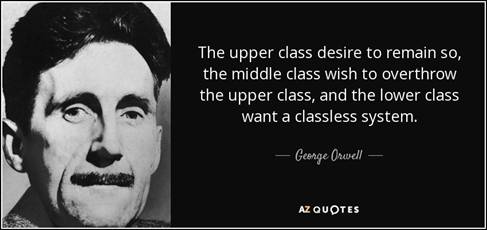
Part 1
&
Part 2
In the first of a two-part conversation, the two intellectuals discuss the shift in the U.S. and U.K. in the late 1970s toward neoliberalism,
an ideology that Chomsky says claims to increase freedom while actually
increasing tyranny.
==============
b.
How G20 Governments are Financing Climate Disaster

http://therealnews.com/t2/story:19484:How-G20-Governments-are-Financing-Climate-Disaster
The G20 nations provide four times more public financing to
fossil fuels than to clean energy, according to a new report from Oil Change
International's Alex Doukas.
==============
c.
G20 – Is the West Governed by
Psychopaths?

http://www.informationclearinghouse.info/47383.htm
By Peter Koenig
“Welcome to Hell!” is
the slogan with which G20 protesters greet the self-appointed leaders of the
world to their summit on 7 and 8 July 2017 in Hamburg, Germany, under Madame
Merkel’s auspices to discuss the calamities of our globe and how to resolve
them. Never mind that the distress of Mother Earth has been mostly caused by
those who represent the West, and now pretend to fix it.
How utterly arrogant – and hypocritical!
In the wake of the summit, police were beating on aggressively against the
demonstrators, most of them peaceful, unarmed; but some of them violent and
hooded, as old tradition dictates, so they will not be recognized as police
themselves or patsies of the police. Many people were hurt, several to the point
of hospitalization. And the meeting just began.
==============
d.
America's Death Throes
https://sputniknews.com/columnists/201706291055090784-america-death-throes/
by Finian
Cunningham
China
and Russia have already ditched the US dollar in their vast energy trade. Now
China is leveraging Saudi Arabia to also abandon the greenback for oil sales.
No wonder, it seems, that US policies are increasingly
lashing out.
US
global power depends on its presumed economic prowess and military force.
With its economy in long-term decline, precipitated by the teetering
dollar, the US rulers are relying increasingly on militarism
to project power. That tendency is pushing the world to war.
The
challenge is to somehow steer the American military monster into a
safe berth without eliciting a world war.
The
US decline is of historic proportions – on par with the demise
of other past empires – and it stems from the looming collapse of the
petrodollar system, which has given the US unprecedented privileges
over the past decades since the Second World War
==============
e.
U.S. Rabbis Just
Got a Close-up Look at Occupation
in the West Bank - and It’s Not
a Pretty Sight

http://www.informationclearinghouse.info/47378.htm
Rabbi
Stanley Kessler first visited Hebron in 1967, just
after the Six-Day War.
He returned for a second visit in 1973. This week, at age 94, he came back for
his third trip and hardly recognized the city.
“I
have difficulty seeing what I’m seeing,” he says, pausing for a moment of
reflection after a stroll, on a sweltering day, through what used to be the
bustling center of this West Bank city. “On my previous trips, the streets were
swarming with people. And now, I didn’t even see one single person.”
“Where
has everyone gone?” wonders Kessler, who served for 40 years as rabbi of a
large Conservative congregation in Hartford, Connecticut, and had studied under
Abraham Joshua Heschel, one of America’s most revered
rabbis.
Kessler
has been around, as they say. During World War II, he served as an aerial
gunner and radio operator in the U.S. Air Force, flying 18 missions over
Europe. In 1963, he was one of 18 rabbis who marched for black civil rights
with the Rev. Martin Luther King Jr. in Birmingham, Alabama. In the late 1960s,
he was active in the anti-Vietnam War movement.
But
something about this most recent trip to Hebron – a city where the entire story
of the Israeli occupation plays out in a nutshell – has shaken him deeply.
==============
f.
Who is Served by Militarized Aid to
Palestine?
http://therealnews.com/t2/story:19455:Who-is-Served-by-Militarized-Aid-to-Palestine%3F
As we all
know, the US arms everybody. They arms the Saudis and
the Qataris. They armed Iraq and Iran. So funding two sides of a conflict is
not new policy for the United States. They do this because it's hugely profitable.
Putting arms proliferation into the context of aid may confuse some people,
making it appear that the US is helping promote democracy and peace, but what
it's really promoting is profit for the military-industrial complex. Military
aid is not, as some think, cash that goes to allies so they can defend
themselves. It's taxpayer money that's given almost directly in many cases to
the US military contractors. What the foreign governments get is weapons and
training that they use to promote US military interests in their own regions.
==============
g.
Trump Tells
Russia to Stop 'Destabilizing' Ukraine,
But What's
Really Going On?
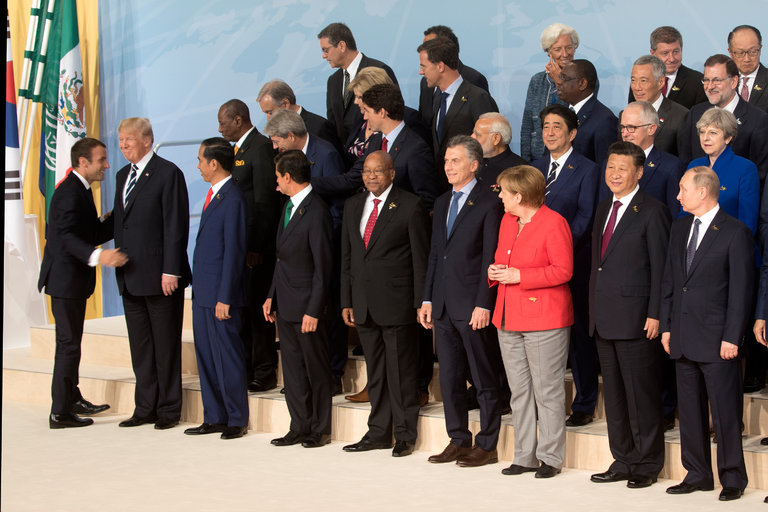
http://therealnews.com/t2/index.php?option=com_content&task=view&id=31&Itemid=74&jumival=19485
Western
powers fuel the Ukrainian conflict -- and wider tensions with Russia -- by
treating Ukraine as a strategic prize, says Nicolai Petro, Silvia-Chandley professor of Peace Studies and Nonviolence at the
University of Rhode Island
+
Putin
And Trump Stage-manage A Win-win Meeting
http://www.informationclearinghouse.info/47393.htm
by Pepe Escobar
With a ceasefire in
southwestern Syria in the works, meeting proves diplomacy beats demonization
==============
h.
Trump, Putin and Russiagate
Collide at G20

http://therealnews.com/t2/story:19496:Trump%2C-Putin-and-Russiagate-Collide-at-G20
Max
Blumenthal and Aaron Mate discuss the long-awaited first meeting between Donald
Trump and Vladimir Putin
+
http://www.informationclearinghouse.info/47392.htm
by the Saker
First, we have the manner in which the Americans have been
preparing the G20 summit. As we all know, in diplomacy actions count as
much, or even more, than words. Here are just a few of the actions
recently taken by the Americans in preparation for the G20 summit and Trump’s
first meeting with Putin (in no particular order):
==============
i.
"What
to the Slave is 4th of July?"
James
Earl Jones Reads Frederick Douglass's
Historic Speech
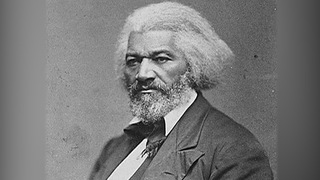
https://www.democracynow.org/2017/7/4/what_to_the_slave_is_4th
==============
j.
The Untold History of Independence Day
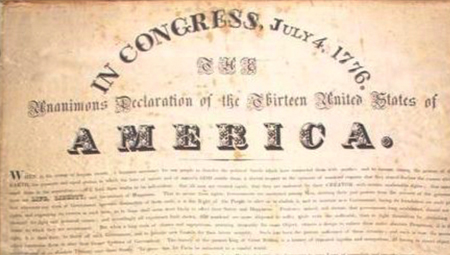
http://therealnews.com/t2/story:12076:TRNN-Replay%3A-The-Untold-History-of-Independence-Day
Historian Peter Linebaugh: The rights and
freedoms that we celebrate on the Fourth of July are the product of vast human
struggle that remains unfinished
==============
k.
Have you ever wondered what happened to
the 56 men who signed the Declaration of Independence?
http://history-world.org/declaration%20men.htm
Five signers were captured by the
British as traitors, and tortured before they died.
Twelve had their homes ransacked and
burned.
Two lost their sons serving in the
Revolutionary Army; another had two sons captured.
Nine of the 56 fought and died from
wounds or hardships of the Revolutionary War.
They signed and they pledged their
lives, their fortunes, and their sacred honor.
What kind of men were they?
Twenty-four were lawyers and jurists.
Eleven were merchants, nine were farmers and large plantation owners: men of
means, well educated. But they signed the Declaration of Independence knowing
full well that the penalty would be death if they were captured.
Carter Braxton of Virginia, a wealthy
planter and trader saw his ships swept from the seas by the British Navy. He
sold his home and properties to pay his debts and died in rags.
Thomas McKeam
was so hounded by the British that he was forced to move his family almost
constantly. He served in the Congress without pay, and his family was kept in
hiding. His possessions were taken from him, and poverty was his reward.
Vandals or soldiers looted the
properties of Dillery Hall, Clymer, Walton, Gwinett, Heyward, Ruttledge, and
Middleton. At the battle of Yorktown, Thomas Nelson, Jr. noted that the British
General Cornwallis had taken over the Nelson home for his headquarters. He
quietly urged General George Washington to open fire. The home was destroyed,
and Nelson died bankrupt.
Francis Lewis had his home and
properties destroyed. The enemy jailed his wife, and she died within a few
months. John Hart was driven from his wife's bedside as she was dying. Their 13
children fled for their lives. His fields and his gristmill were laid to waste.
For more than a year he lived in forests and caves, returning to find his wife
dead and his children vanished. A few weeks later he died from exhaustion and a
broken heart. Norris and Livingston suffered similar fates.
Such were the stories and sacrifices of
the American Revolution. These were not wild-eyed, rabble-rousing ruffians.
They were soft-spoken men of means and education. They had security, but they
valued liberty more. Standing tall and straight, and unwavering, they pledged:
"For the support of the declaration, with firm reliance on the protection
of the divine providence, we mutually pledge to each other, our lives, our
fortunes and our sacred honor."
==============
l.
The Counter-Revolution of 1776
and the Construction of Whiteness
(3/6)
On Reality
Asserts Itself Mr. Horne says that the defense of massive profits from the
slave trade and fear of slave rebellions was an important impetus for the
American Revolution
==============
m.
Why Do North Koreans Hate Us? — The
Korean War
by Mehdi Hasan
Let’s be clear: There is no doubt that the citizens of the
Democratic People’s Republic of Korea both fear and loathe the United States.
Paranoia, resentment, and a crude anti-Americanism have been nurtured inside
the Hermit Kingdom for decades. Children are taught to
hate Americans in school while adults mark a “Struggle
Against U.S. Imperialism Month” every year (it’s in June, in
case you were wondering). North Korean officials make wild threats against
the United States while the regime, led by the brutal and sadistic Kim Jong-un,
pumps out fake news in
the form of self-serving propaganda, on an industrial scale. In the DPRK,
anti-American hatred is a commodity never in short supply.“The hate, though,”
as longtime North Korea watcher Blaine Harden observed in the Washington Post,
“is not all manufactured.” Some of it, he wrote, “is rooted in a fact-based
narrative, one that North Korea obsessively remembers and the United States
blithely forgets.”
==============
n.
Israel's Descent into Barbarism
On Reality Asserts Itself, Mr. Finkelstein describes the
"necessity" of Israel proving its destructive capabilities.
==============
o.
|
|
U.S. Confirms North Korea
Fired Intercontinental Ballistic Missile
by CHOE SANG-HUN
The North claimed a milestone in its efforts to build nuclear
weapons capable of hitting the American mainland, prompting a warning from the
United States.
==============
p.
Katrina vanden Heuvel: Now is Time for
Trump & Putin to Negotiate, Not Escalate Tensions
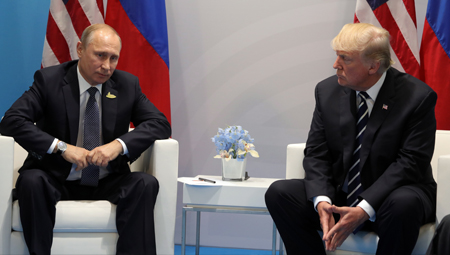
https://www.democracynow.org/2017/7/7/katrina_vanden_heuvel_now_is_time
While National Security Adviser General
H.R. McMaster said last week there’s no specific agenda for the meeting, the
topics of conversation could include the war in Syria, North Korea, U.S.
economic sanctions against Russia and nuclear weapons. Democrats are also
pushing for Trump to confront Putin directly about the alleged Russian
interference in the 2016 election. On Thursday, five Senate Democrats,
including Minority Leader Chuck Schumer of New York, sent a letter to Trump
calling on him to, quote, "make absolutely clear that Russian interference
in our democracy will in no way be tolerated," unquote. But during a news
conference Thursday from Poland, Trump cast doubt on whether he believes Russia
interfered in the 2016 election.
==============
q.
Congress Must Reclaim War-Making Authority
http://www.truth-out.org/news/item/41186-congress-must-reclaim-war-making-authority
by Marjorie Cohn
The
House Appropriations Committee unexpectedly passed an amendment to the
Department of Defense Appropriations bill last week that would repeal the
Authorization for Use of Military Force (AUMF) passed by Congress in 2001 after
the 9/11 terrorist attacks. If this effort to revoke the AUMF proves
successful, the repeal would effectively limit Donald Trump's ability to use
military force against North Korea, Iran and elsewhere.
==============
r.
A Small
City's Big Lessons About Progressive Organizing
http://therealnews.com/t2/index.php?option=com_content&task=view&id=767&Itemid=74&jumival=19273
"Over the last 10 to 15
years, we've seen the emergence of a broad-based, working-class oriented,
multiracial progressive movement in Richmond that has challenged Chevron's
long-time dominance over municipal affairs," says author and labor
activist Steve Earl.
==============
s.
Naomi
Klein: The Worst Is Yet to Come with Trump, So We Must Be Ready for Shock
Politics
https://www.democracynow.org/2017/6/30/naomi_klein_the_worst_is_yet
NAOMI KLEIN: Now, of course many of the scandals
are the result of the president’s ignorance and blunders, not some nefarious
strategy. But there’s also no doubt that some savvy people around Trump are
using the daily shocks as cover to advance wildly pro-corporate policies that
bear little resemblance to what Trump pledged on the campaign trail.
DONALD TRUMP: Save Medicare, Medicaid and Social
Security.
MSNBC ANCHOR: The White House released its budget
for 2018, and among the $4 trillion in cuts it proposes are billions upon
billions of dollars slashed from both Medicaid and Social Security.
NAOMI KLEIN: And the
worst part, this is likely just the warm-up. We need to focus on what this
administration will do when it has a major external shock to exploit. Maybe it
will be an economic crash like 2008, maybe a natural disaster like Sandy, or
maybe it will be a horrific terrorist event like Manchester or Paris in 2015.
Any one such crisis could redraw the political map overnight. And it could give
Trump and his crew free rein to ram through their most extreme ideas.
But here is one thing I’ve learned over
two decades of reporting from dozens of crises around the world: These tactics
can be resisted. And, for your convenience, I’ve tried to boil it down to a
five-step plan.
==============
t.
Secret Memo Reveals How Trump Plans
to Deport Millions of Immigrants
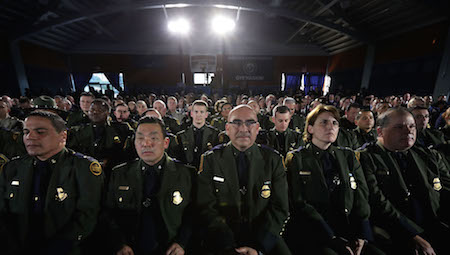
http://therealnews.com/t2/index.php?option=com_content&task=view&id=31&Itemid=74&jumival=19497
ProPublica's Marcelo Rochabrun
discusses an internal ICE memo that instructs officials to ramp up deportations
of undocumented immigrants, including those without criminal records.
==============
u.
Iraq: Will
Tony Blair Finally Stand Trial for His Part in
the “Supreme International Crime”?

http://www.informationclearinghouse.info/47394.htm
by Felicity Arbuthnot
==============
v.
The Syrian Test of Trump-Putin
Accord
https://consortiumnews.com/2017/07/08/the-syrian-test-of-trump-putin-accord/
by Ray McGovern
The
U.S. mainstream media remains obsessed over Russia’s alleged “meddling” in last
fall’s election, but the real test of bilateral cooperation may come on the
cease-fire in Syria, writes ex-CIA analyst Ray McGovern.
==============
w.

One week before
the #NoWar2017: War and the
Environment conference,
World Beyond War will work with the Backbone Campaign and other allies to
organize a flotilla for the environment and peace, bringing Kayaktivism
to Washington, D.C. Pentagon war making is a leading cause of world-wide
environmental degradation.
===========
x.
The GOP's
Health Care Legislation Is Cruel and Punitive, Doctors Say
by Dahr
Jamal
Insurance is not the same as health care, which is intensely
personal, relationship-based and immensely complex, point out physicians and
other health professionals. To have non-clinicians in Congress denigrate a
service they know nothing about is at the core of this tragic and ill-informed
policy debate, says Dr. Bruce Amundson of Physicians for Social Responsibility.
